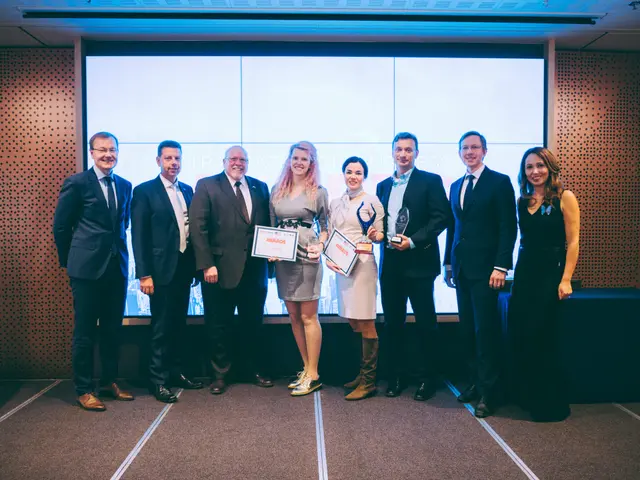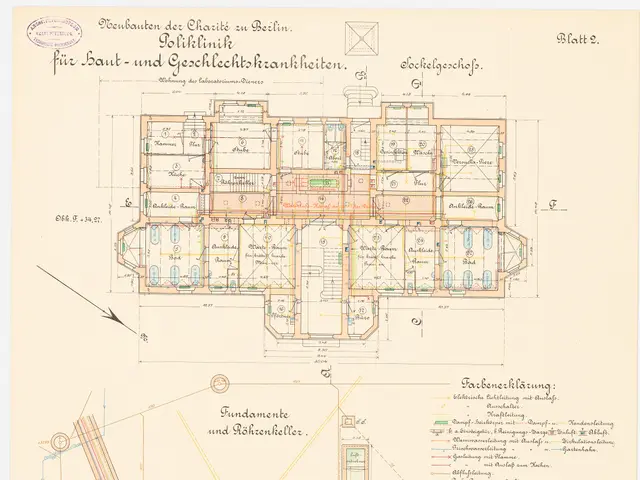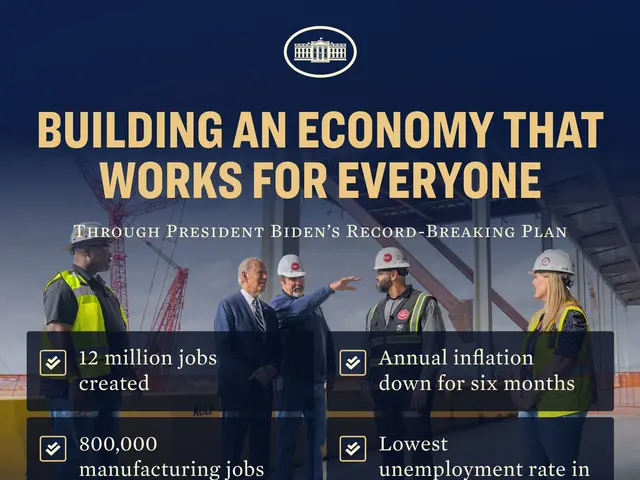Vacation job at VW leads to straightforward assessment - his verdict is unequivocal
Volkswagen Keeps Wolfsburg Plant Running During Summer Break, Temporary Workers Join the Team
For the first time in years, Volkswagen's Wolfsburg plant continued production during the summer break, a decision driven by increased demand and the need to maintain output amid challenging market conditions. This move reflects the company's efforts to sustain production levels amid financial pressures and transitions within the automotive industry, including the shift towards electrification.
Approximately 700 temporary workers joined the regular workforce at the Wolfsburg plant, working in almost all areas of the plant. Ramez Lazrag, a student at Ostfalia University in Wolfsburg, was one of them, contributing in Hall 8 where he worked on installing insulation mats and cable harnesses. Maya Hage, who had just completed her training as a kindergarten teacher, also joined the team, choosing to work at VW instead of taking a five-week break.
The plant manager, Uwe Schwartz, expressed his gratitude for the temporary workers, stating that they made an important contribution during the holiday period at the Wolfsburg plant. He also thanked the experienced workers who trained the newcomers. The experiences of these temporary workers were mixed. Some found the extended production period demanding but appreciated the opportunity for consistent work, while others faced typical challenges associated with temporary labor such as job insecurity and fluctuating workloads.
The Wolfsburg plant's summer break operations were successful, as indicated by Schwartz's positive statement. Both Ramez and Maya reported positive experiences during their time at the VW plant, with Ramez describing the plant as a "big family" and Maya feeling well-supported. The VW plant's traditional summer break was supported by temporary workers to ensure continued production.
The decision to keep the Wolfsburg plant running during the summer break is a testament to Volkswagen's commitment to maintaining production levels amid industry transformations. As the company undergoes a major transition towards electric vehicles, as outlined in their "Strategy 2025," production dynamics across their plants, including Wolfsburg, are being influenced. The Wolfsburg plant, one of the largest car manufacturing facilities globally, plays a critical role in Volkswagen's production strategy.
Recent financial challenges faced by Volkswagen, including huge debts and factory closures, have likely pressured the company to maximize output from existing plants like Wolfsburg to maintain competitiveness and cash flow. The successful summer break operations at the Wolfsburg plant this year, made possible by the temporary workers, are a step towards achieving this goal.
As the temporary workers and the Wolfsburg site management reflect on how the summer break operations went, it is clear that this unique approach to maintaining production during the summer break has been a success. The experiences of Ramez and Maya, and the other temporary workers, highlight the opportunities and challenges associated with such circumstances in the automotive industry undergoing transformation.
- Despite the challenging market conditions in the automotive industry, particularly the shift towards electrification, Volkswagen's Wolfsburg plant, a key player in the global manufacturing industry, continued production during the summer break.
- The aerospace and technology sectors, not traditionally associated with the automotive industry, were indirectly impacted by Volkswagen's decision to keep the Wolfsburg plant running, as the plant's successful summer break operations contributed to Volkswagen's cash flow and competitiveness.
- The financing of the plant's summer break operations was likely influenced by recent financial challenges faced by Volkswagen, where temporary workers played a crucial role in filling the gap and maintaining the plant's productivity.








